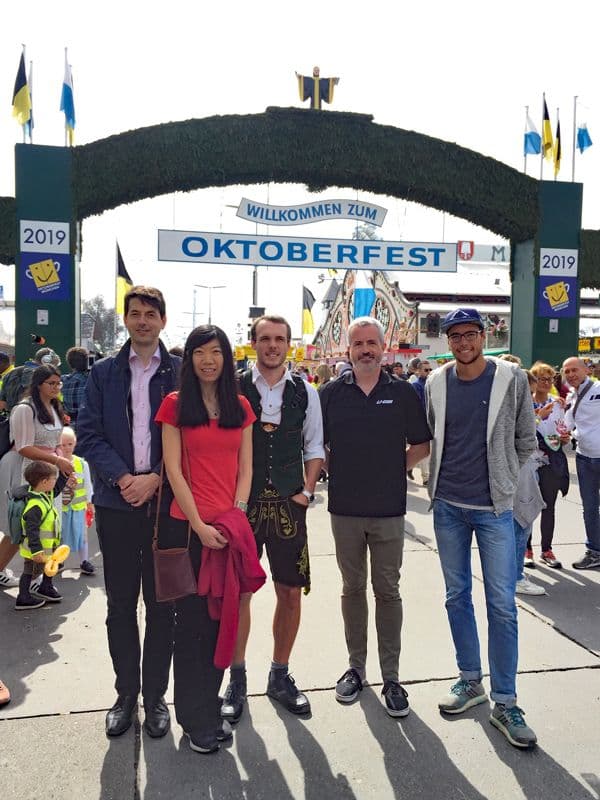Measuring Greenhouse Gas Emissions at Oktoberfest
With the kickoff of Munich's annual Oktoberfest, the influx of visitors has prompted scientists to investigate the festival's effect on local greenhouse gas (GHG) emissions. Professor Jia Chen, professor and head of Environmental Sensing and Modelling at the Technical University of Munich (TUM), is working with her research team to evaluate these GHG changes.
Professor Chen's group has been making valuable contributions to better understand the relationship between GHG emissions and urban environments for several years.1-4 Having previously recorded long-term measurements of carbon dioxide, carbon monoxide, and methane in Munich, it was evident that Oktoberfest was associated with a discernible rise in methane emissions.
To investigate the correlation, Professor Chen's team recorded methane emissions and determined possible sources on the event grounds. They walked Oktoberfest's perimeter to measure the methane concentration on the move. Elevated concentrations within a given area indicated a nearby emissions source. For eight to twelve hours each day during the two-week festival, TUM researchers relied on trace gas analyzers to locate and quantify methane emissions in hopes of identifying emissions sources. To precisely measure the methane concentrations, Professor Chen’s team used the LI‑7810 CH4/CO2/H2O Trace Gas Analyzer for its speed and portability. “The LI‑COR instrument is reliable and easy to use. It is well suited for real-time measurement and monitoring,” explains Professor Chen.
Professor Chen anticipates that combining different measurement techniques will help create a picture of the total emissions associated with Oktoberfest and identify potential sources. Such measurement techniques include total carbon column measurements, which rely on a fixed network of instruments, and source location, which uses more mobile methods than fixed networks. A comprehensive map can then be constructed from these concentration measurements along with location data from GPS, wind speed and direction data, and computational fluid dynamics modelling.
By examining the relationship between Oktoberfest and rising methane emissions, Professor Chen's team can validate this combined measurement methodology then share its results with the scientific community.
Watch a German news story that covers Professor Chen's research .
Read the results published in Earth's Future here.


References
- Ludwig Heinle and Jia Chen: Automated Enclosure and Protection System for Compact Solar-Tracking Spectrometers. Atmospheric Measurement Techniques (11), 2018, 2173-2185
- J. Chen, C. Viatte, J. K. Hedelius, T. Jones, J. E. Franklin, H. Parker, E. W. Gottlieb, P. O. Wennberg, M. K. Dubey, and S. C. Wofsy: Differential column measurements using compact solar-tracking spectrometers. Atmospheric Chemistry and Physics (16), 2016, 8479-9498
- Toja-Silva F., Chen J., Hachinger S., Hase F.: ‘CFD simulation of CO2 emission from urban thermal power plant: analysis of turbulent Schmidt number and comparison with Gaussian plume model and measurements’. Journal of Wind Engineering & Industrial Aerodynamics. 2017; 169: 177–193
- Chen, J., Dietrich, F., Maazallahi, H., Forstmaier, A., Winkler, D., Hofmann, M. E. G., Denier van der Gon, H., and Röckmann, T.: Methane Emissions from the Munich Oktoberfest, Atmospheric Chemistry and Physics Discussion, https://doi.org/10.5194/acp-2019-709, in review, 2019
- Dietrich, F., Chen, J., Shekhar, A., Lober, S., Krämer, K., Leggett, G., et al. Climate impact comparison of electric and gas-powered end-user appliances. Earth's Future (11) e2022EF002877. 2023 https://doi.org/10.1029/2022EF002877